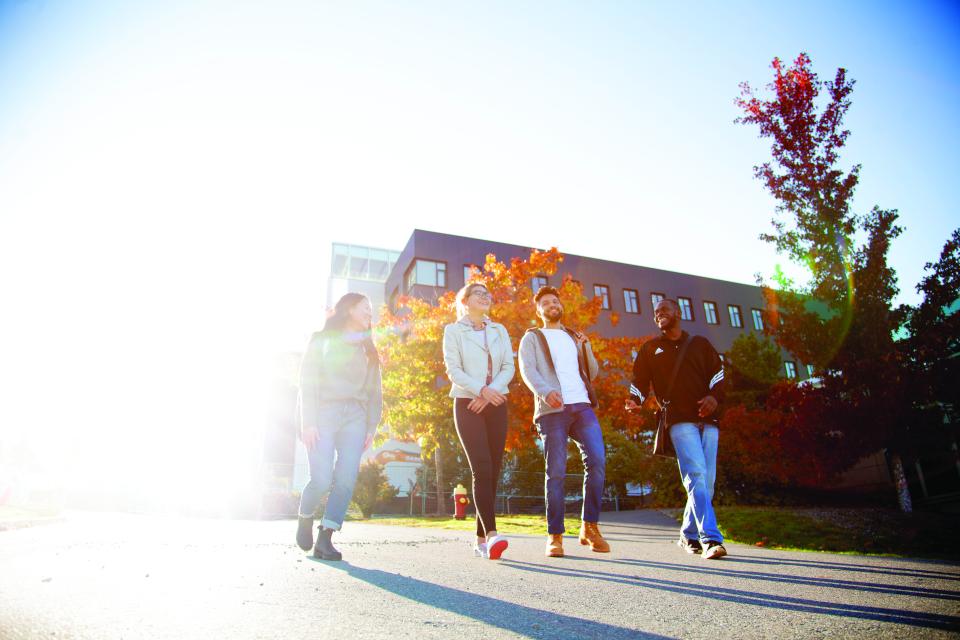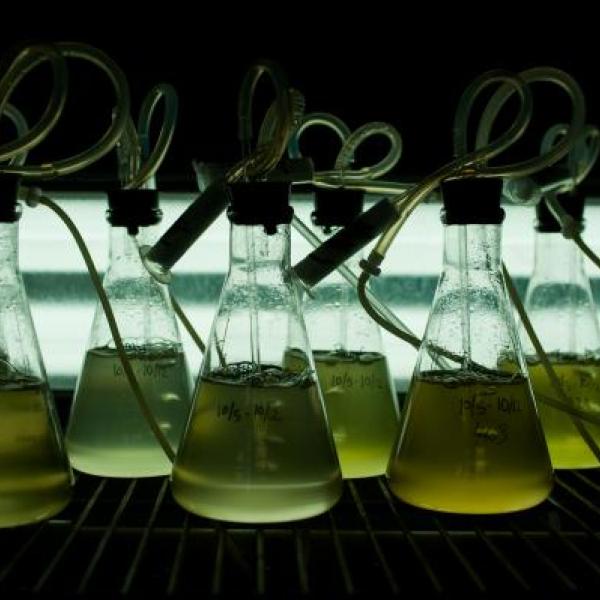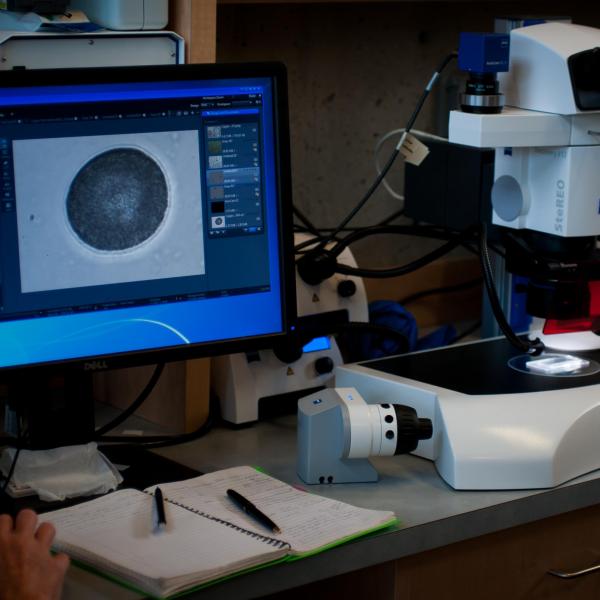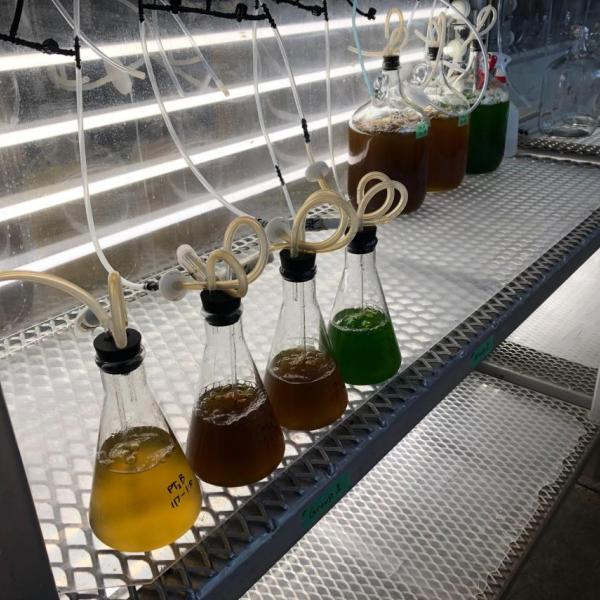In this two-part algae laboratory, students will learn about the important part algae plays in the marine ecosystem, while developing their own inquiry lab experiment.
Program Details
Session One (60 minutes)
We will begin with an introduction to photosynthesis and algae. Algae types, growth and importance in the marine ecosystem will be explored. Students will watch a short video of an Algologist at work to learn about how they came into that career path.
In groups, students will work together to develop a hypothesis, prediction, and methods for growing their own algae flask in the quest of being a 'master algologist'. By the end of this session, students will decide what variable they think will help their algae grow the most dense over a span of 7-14 days and then apply that treatment. Day 0 measurements will be taken using a spectrophotometer and students will record their data. This is the end of the first session of the lab.
Teachers will receive an update of the algae flask growth mid-way (3 or 4 day mark) so that students can fill in their data sheets.
Session Two (30 minutes)
*If the class is unable to attend the second session, data will be collected by our staff and then shared with the teacher and an additional 30 min of instruction time will be added to your quote*
For the second session (typically a week or two later), students will take their final measurements and record it in their data sheet. Students will be led to interpret and discuss their results and create a graph. A classroom discussion of general trends seen by each group will follow. Students at this time will complete their worksheet with conclusions and recommendations for future algae growth experiments.
Learning Outcomes
After completing this laboratory, students should have an understanding of:
- Photosynthesis in marine environments
- Types of algae: diatoms and dinoflagellates
- Experimental design
- Data collection
Teachers are encouraged to further explore this laboratory by having students create a laboratory report or poster of their experiment.
**This program can be run at either VIU Nanaimo Campus or Deep Bay Marine Field Station. Program may be modified depending on location.**
- Grade 4 Science: Sensing and responding: - other animals
- Grade 7 Science: Survival needs
- Grade 8 Science: Photosynthesis and cellular respiration
- Grade 9 Science: Asexual reproduction: mitosis
- Grade 11 Life Sciences: Cells are the basic unit of life: photosynthesis

Book Your Field Trip
Get started by filling out our booking request form for one of the following locations.



